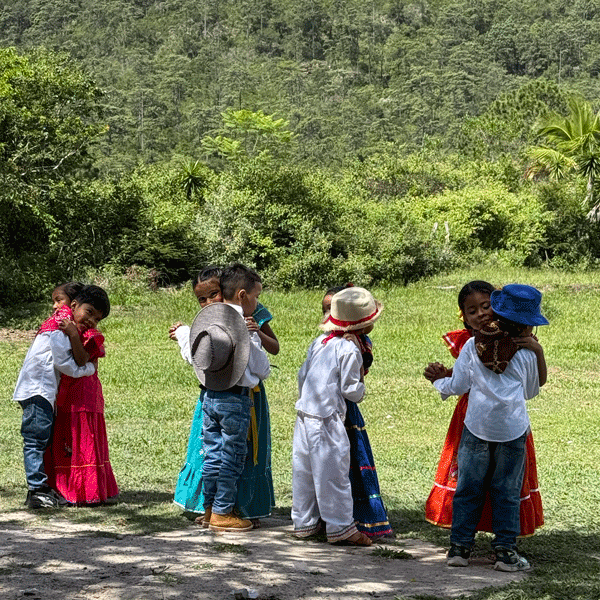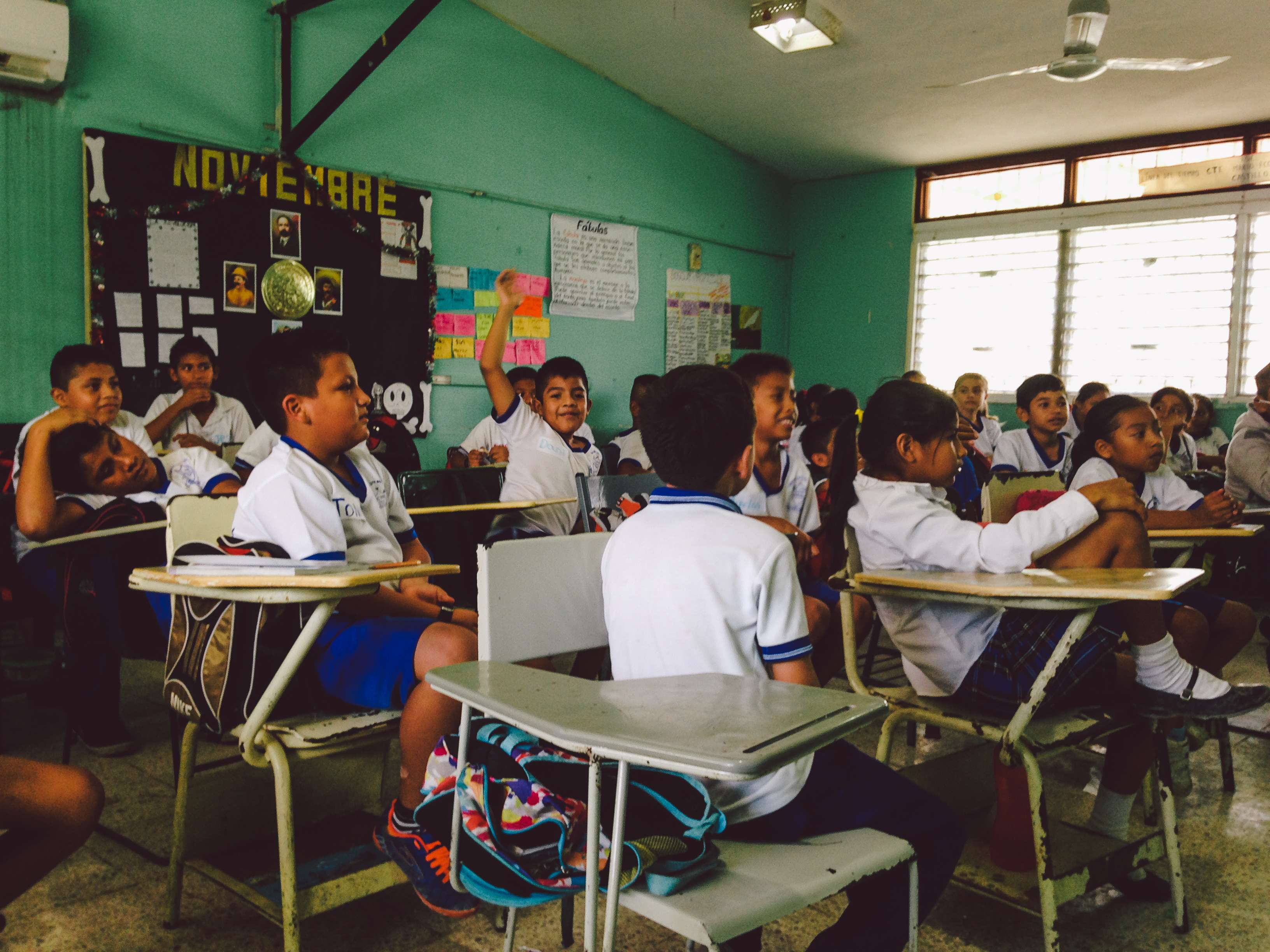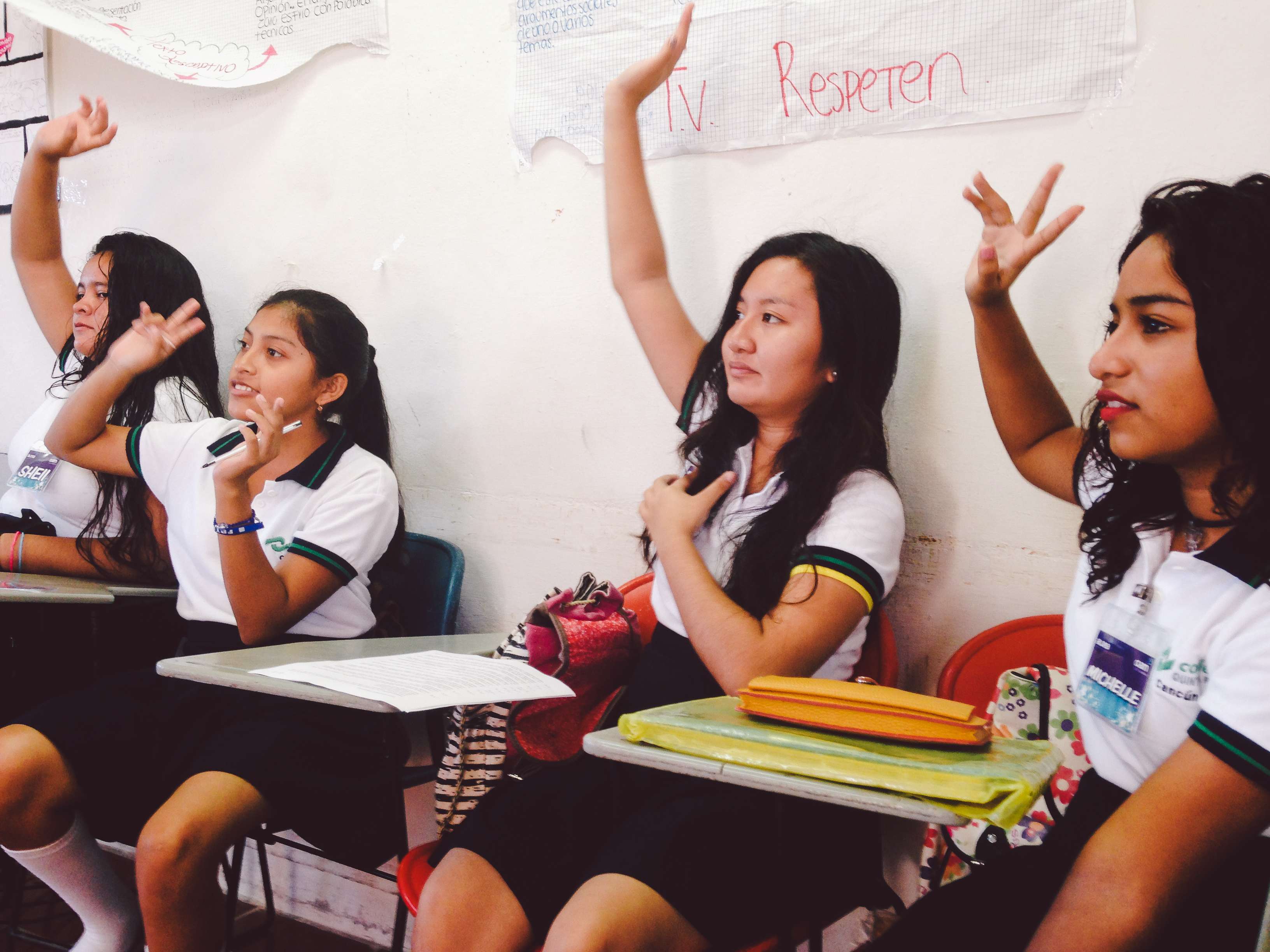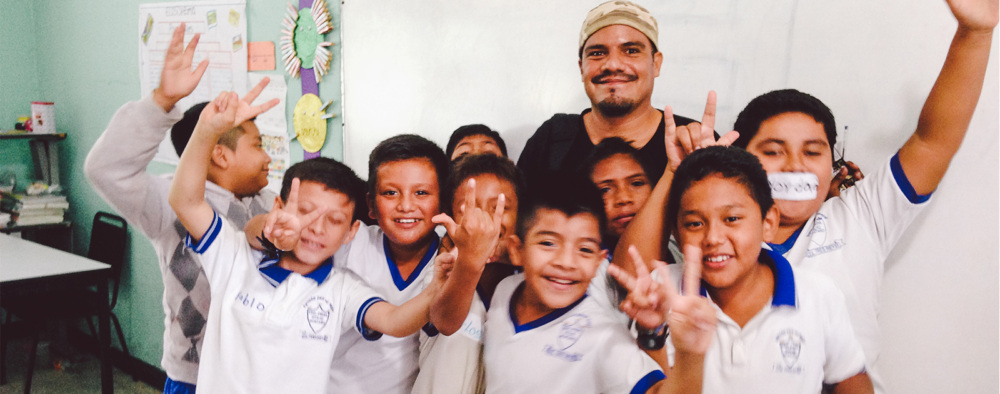
Educação
Educação, Justiça de gênero, Segurança e bem-estar, Poder da juventude
Este resumo e o relatório completo refletem o trabalho do consultor independente GENDES (Género y Desarrollo AC), uma organização mexicana contratada pela GFC para desenvolver e conduzir uma avaliação externa para a iniciativa.

[image_caption caption = “Um jovem levanta a mão durante uma aula com Red + Positihiva de Quintana Roo.” float = “”]
Nos últimos quatro anos, o Mudando atitudes de gênero, empoderando meninas iniciativa tem como objetivo desconstruir machismo e reduzir a violência de gênero por meio do trabalho de seis organizações parceiras na Guatemala, Honduras e México. Este projeto foi possível em colaboração com a Summit Foundation, com apoio adicional da Hawk Rock Foundation e do Girls Rights Project.
Nossos parceiros implementam uma série de programas relevantes para suas comunidades, mas compartilham os seguintes objetivos:
Esses programas acontecem em comunidades onde crianças e jovens enfrentam sérias condições de exclusão socioeconômica e onde a violência de gênero é generalizada.
O GFC encomendou esta avaliação para avaliar a relevância e a eficácia do nosso processo de concessão de subsídios para apoiar organizações locais que trabalham com questões de violência de gênero.
A avaliação independente concluiu que a Mudando atitudes de gênero, empoderando meninas iniciativa tem sido bem-sucedida em promover mudanças significativas entre seus participantes – particularmente em alterar as ideias dos jovens sobre o que significa ser homem ou mulher. Muitos aprenderam a questionar papéis tradicionais de gênero e tomaram medidas para estabelecer normas sociais mais equitativas em seus relacionamentos.
A nível individual, muitos rapazes e homens que participaram na iniciativa:
“Gosto muito de ajudar outros jovens na minha comunidade, porque assim como comecei, há muitos de nós, jovens na comunidade, que não temos consciência… de quão prejudiciais as relações de poder podem ser e das consequências da violência de gênero. Aprendi o valor de respeitar e ser respeitado, e sobre direitos humanos e direitos sexuais e reprodutivos. Posso dizer que, acima de tudo, aprendi sobre coisas que hoje em dia são muito raramente abordadas, pois ainda são consideradas tabu.” – Jorge, 18 anos, participante da iniciativa da organização parceira GOJoven México
Muitas meninas e mulheres que participaram da iniciativa:

[image_caption caption = “Jovens participando ativamente durante uma aula do CIAM Cancun.” float = “”]
“Antes de chegar ao CIAM, eu era uma pessoa muito fechada, com humores muito desequilibrados, e depois de conhecê-los, decidi pedir ajuda e agora, graças a eles, sou uma pessoa diferente. Tenho meus humores bem equilibrados. Tenho mais confiança na minha mãe, para contar as coisas a ela, para não me apegar ao que sinto ou ao que vejo.” – Amanda, 18 anos, participante da iniciativa da organização parceira CIAM Cancun
A avaliação destacou impactos adicionais nas famílias e comunidades dos participantes. Os pais estão mais receptivos a que seus filhos assumam papéis de gênero menos tradicionais. Enquanto isso, os professores relatam uma redução significativa em gestações não planejadas, violência escolar e assédio sexual.
A seguir estão as principais recomendações formuladas como resultado desta avaliação:
Leia o relatório de avaliação completo em Inglês ou em Espanhol.
